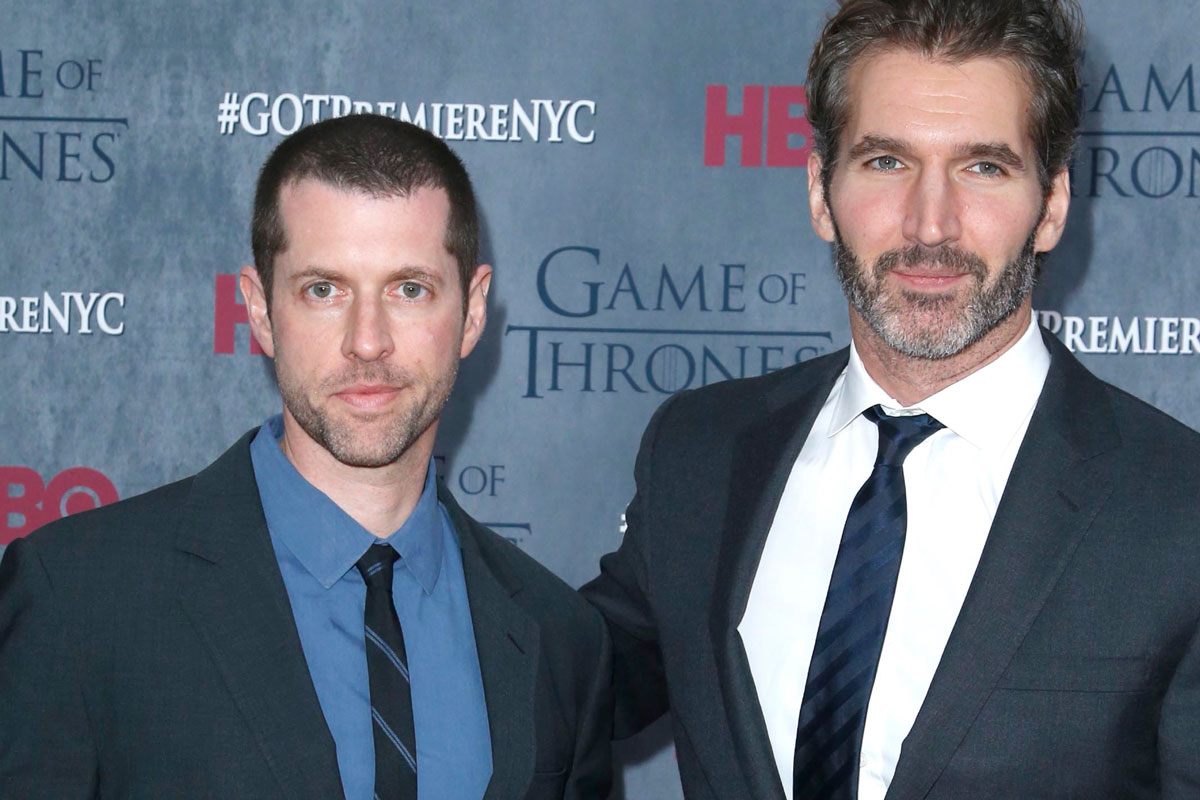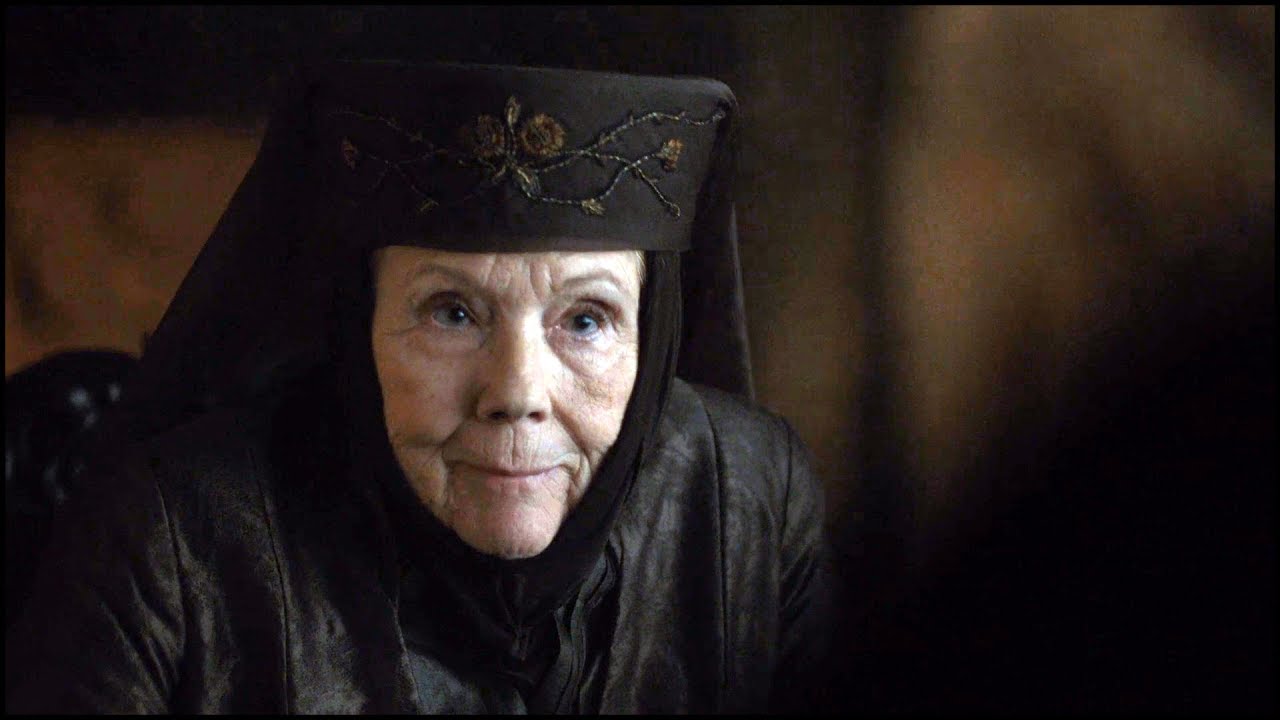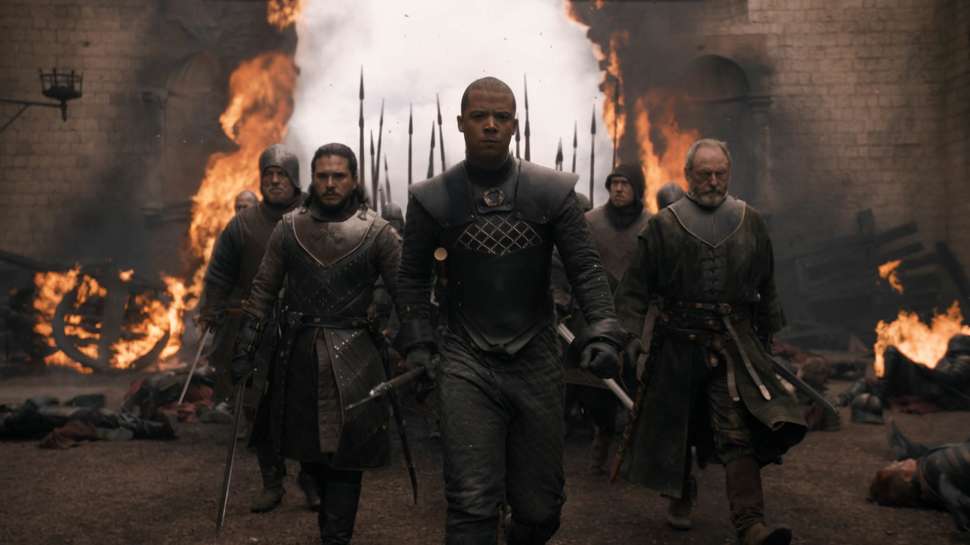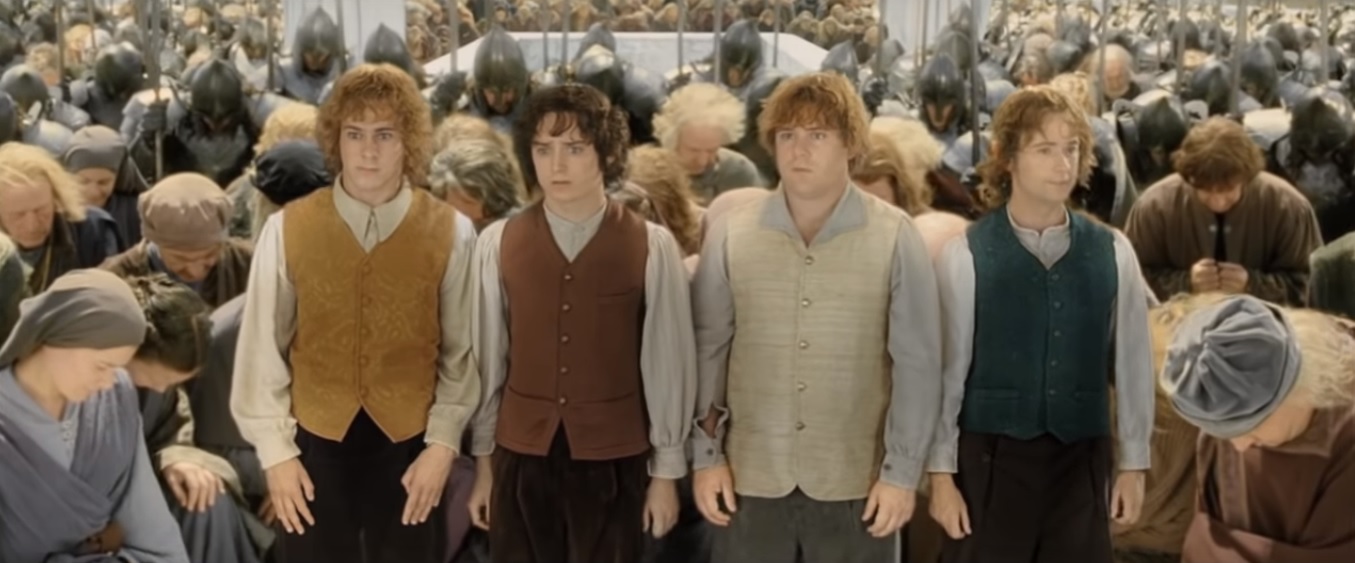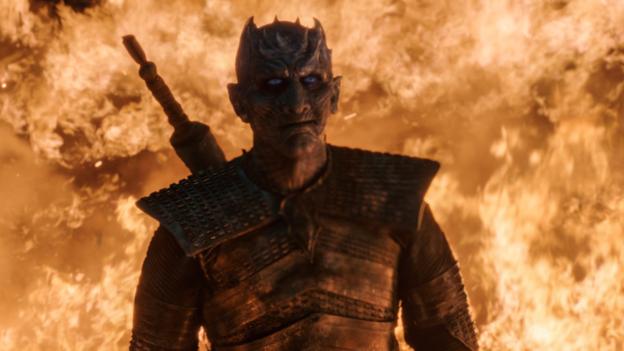In the following hours (and days), something felt different. There seems to be a shift in the school of thought. Game of Thrones which was once seen as the gold standard of fantasy storytelling was suddenly being called ‘the worst show ever.’ A series that has consistently given us some of the best and most badass female characters in all of fiction, was suddenly labelled ‘sexist.’ Showrunners David Benioff and D.B Weiss who were once seen as the John Lennon and Ringo Starr to George R. R. Martin’s Paul McCartney were now tossed in the same boat at George Lucas of the prequel era. The writing-producing duo who were once hailed as masters of the pen were now deemed unworthy of even holding one. “What else do you expect from one of the writers of X-Men Origins: Wolverine?” “These guys are going to ruin Star Wars next!” were some of the lines being tossed around. But where is all of the hate coming from?
Many argue that the writing in season 8 is terribly underwhelming and lacking in subtlety. But the fact that most people didn’t realise Varys was trying to poison Daenerys at the start of episode 5 proves otherwise. When Jamie tells Tyrion that he doesn’t care about the innocents, some took it at face value while others wondered if he’s lying to himself, insecure and feeling that he’s only meant to be with someone who’s as hateful as Cersei. Also: Jamie didn’t go back to Cersei to fight against Dany, he went back to rescue her and take her away across the sea to start a new life. That is an example of nuanced character writing. The entire second episode is a clinic of great dialogue (i.e. “the perils of self-betterment.) To label Benioff & Weiss ‘lousy writers’ is simply unfair and untrue, especially considering a lot of what we love from previous seasons are entirely their creations/adjustments. Daenerys Targaryen’s descent into madness is also not poor writing. In fact, it makes perfect sense. Yes, including the burning of thousands of innocent men, women and children in what at first glance appears to be for no logical reason. But let’s take a look at Dany’s utterly fascinating arc throughout the series. Over the years she has gathered an army of rabid and passionate followers both in-story and within the Game of Thrones fandom. She’s been hailed as a hero and a saviour. “The Breaker of Chains, The Protector of the Realm” her titles ring; “Mhysa! Mhysa!” we fervently sing. But if we really think about it, Dany has consistently displayed villainous traits since the early days. After the cruel death of her crueller brother, she’s been telling anyone with a pair of ears that the Iron Throne belongs to her. Those are the stories she grew up listening to — that King Robert and the Lannisters killed her family and took away her home. Dany believes it in her bones that the throne is her birthright. But what does that even mean? After all, Aegon Targaryen didn’t acquire six out of the Seven Kingdoms through diplomacy. He sacked cities, burned kingdoms to the ground and claimed everything for House Targaryen. He was a vicious conquerer. Daenerys has been doing terrible things since the later days of season one and the early days of season two. But we cheered her on loudly and proudly because her wrongdoings were wrapped nicely with a neat little bow; Because she did terrible things to “terrible people.” But justice is about peace and harmony. Revenge is about payback, vengeance and fear. Justice is about restoring balance, revenge is about retaliation and sometimes, power. It’s one thing to put an end to slavery and execute the slave owners, it’s another to crucify them. There’s a reason why laws in modern society don’t sentence rapists to get sodomized with sharp objects. An eye for an eye is not justice. Daenerys also did not free the Unsullied and ask if they’d like to kill all the slave masters and noblemen in Astapor. She ordered them to do it before freeing them. It’s an important difference. But her first truly unforgivable act comes in season five when she executes Mossador for killing one of the Sons of the Harpy prisoners. When you think about it, Mossador was simply following the footsteps of the woman he looks up to — Queen Dany — he even said as much. But despite being utmost loyal to her, Dany executes Mossandor in public. With Daenerys Targaryen, justice is what she deems it is. She’s often unforgiving and rules with an iron fist.
Dany’s ideology has always been Fire & Blood. In the ‘Battle of the Bastards’ episode in season six, she tells Tyrion “I will crucify the masters, I will set their fleets on fire, kill every last one of their soldiers, and return their cities to the dirt.” Tyrion talks her out of it, convinces her that she should choose the path of love, not fear, and tells her that she shouldn’t be queen of the ashes. Whether it’s Tyrion, Jorah and later Jon, it’s the people around her who constantly kept her worst impulses in check. What do these three have in common? They adore her, romantically or otherwise. They have a soft spot for her. They’re also idealistic and see the person she could potentially become — a queen who would garner the love of millions and rule with kindness and warmth. The brilliance of Game of Thrones is that it’s never black and white. While her advisors gave her excellent guidance on how to be a good person, by following their advice — no fire & blood — she constantly kept losing battles (i.e. the death of the Sand Snakes and the Unsullied getting stuck at Casterly Rock). Every time she disregards their advice and chooses fire & blood, she wins (i.e. burning the Khal alive at Vaes Dothrak and claiming leadership of the Dothraki). But a truly good ruler will find a way to win the game with as little bloodshed as possible. A just ruler would’ve provided the captured Lannister soldiers with an option to bend the knee or get sent to The Wall. Only an egoistic tyrant would give the Tarlys an ultimatum to bend the knee or get burned alive, despite being mere footsoldiers following orders. The only advice she seems to internalise is that by Lady Olenna Tyrell back in season 7:
And also that of her former lover, Daario Naharis who once told her that she’s not a ruler but a conqueror. Unlike Tyrion, Jorah and Jon who are idealistic, Daario and Lady Olenna are pragmatists who see the world as it is and tell it as it is. Dany’s mission since day one has always been to take what she thinks rightfully belongs to her, by any means necessary, only to get sidetracked by those around her. In season 7, Jon sidetracks her once again and shifts her focus towards the Night King. She begrudgingly agrees to help Jon ONLY BECAUSE she was confident that Jon would in return help her take the Iron Throne. In a mission to capture one of the wights, she loses one of her dragons. When she first rode into Winterfell, the Northmen didn’t welcome her with open arms. They looked at her in fear with distrust in their eyes. During the Battle of Winterfell, she loses her most trusted friend. After the Battle of Winterfell, both her best friend, Missandei, and her second child, Rhaegal, gets killed off in quick succession. On top of that, season 8 also added another layer of complication — Jon’s Aegon Targaryen reveal. The fact that Dany questions Jon through gritted teeth, instead of celebrating the fact that her lover who lived his whole life thinking he’s a bastard just discovered that he actually has parents, tells you everything you need to know about her character. If Dany was a Throne drunk, power hungry, desperate for adoration, merciless (unless told otherwise) queen even with her loved ones beside her, how do you think she feels now that most of them are either dead, not romantically interested in her anymore or have turned on her completely? On top of that, in her mind, all of this could’ve been avoided if she simply ignored her advisors from the beginning; if she chose fire & blood. This I guess, still doesn’t answer the question: why did she choose to burn King’s Landing to the ground after the Lannister soldiers have surrendered?
I’ve spent the better part of the last two days thinking about that. Trying to put myself in her shoes and understand her mindset. When she’s perched on the roof after they’ve thrown their swords on the ground and admitted defeat, something still doesn’t feel right. “What about my friends who lost their lives?” she thinks. Them surrendering doesn’t quench her thirst for revenge. But even more than that, her wheels are spinning. She thinks back to all the times she didn’t follow her gut feeling (at the start of the episode, it’s Tyrion who once again convinces her that she shouldn’t sack the city). She also imagines the thousands of people in King’s Landing cheering the name of the noble and honourable Jon Snow and wishing he would be their King instead (remember, Varys sent out a bunch of letters before he died), claiming that he’s the rightful monarch. She’s heartbroken. She’s pissed off thinking about the civilians who’re unaware that she’s there to give them a better life. So in that moment, she does what her gut tells her to. She does what she said she would many seasons ago. She burns everything to the ground. This isn’t poor writing. This is years of brilliant character writing unravelling and exploding in a heartbreaking crescendo. So why then does it still feel a little bit jarring? I think this has less to do with Dany’s arc and more to do with the Night King as well as where we thought this season and the series as a whole was ultimately heading. Hear me out. As the seasons progressed, most of us believed that the Night King would eventually be the true villain. We thought we understood the broader theme of the narrative — petty politics and squabbling do not matter in the face of true evil and that we must put aside all our political differences and band together as a united front to defeat said evil. But that my friend, is the plot of The Lord of the Rings. George R. R. Martin has mentioned that his books are the anti-LOTR, an exploration of what happens after the wars are won. Which is why the books and the series takes place after Robert’s Rebellion.
Did he maintain a standing army? What did he do in times of flood and famine? And what about all these orcs? By the end of the war, Sauron is gone but all of the orcs aren’t gone – they’re in the mountains. Did Aragorn pursue a policy of systematic genocide and kill them? Even the little baby orcs, in their little orc cradles?” Both LOTR and ASOIAF/GOT are explorations of the saying, ‘absolute power corrupts absolutely.’ But while LOTR takes a more idealistic approach (the reluctant king becomes the ruler, everyone bows down to the hobbits, all the races live together happily ever after), Game of Thrones takes a more realistic, almost cynical approach. Sure, most people, regardless of race, religion or colour, will band together to take on the ugly evil zombies, which will ultimately lead to the good guys winning. But that’s the inevitable uninteresting part you’ve seen time and time again. The question is, what happens after? What happens to the saviour from a foreign land who rode in on a dragon? What happens to the reluctant hero who knows nothing but everyone loves? In our world, will racism, religious extremism, politics and a thirst for power end in the face of global warming or an alien invasion? Probably not. It’s thematically brilliant. The Night King was merely a distraction. A glimmer of hope that shows us that humanity is capable of being united.
The problem is, throughout season 7, that distraction took centre stage while Dany’s arc became a subplot (which makes total sense from an in-story character standpoint). But in episode 3 of season 8, the Night King plot ended just like that (which reminder, isn’t the point), immediately thrusting the Dany-Throne storyline into the forefront again. Because the White Walkers swerved the show in a different direction, it may seem like Daenerys’ descent into madness was still in gear one, when in fact it’s been brewing, broiling and on the verge of exploding for the past two to three seasons. The two-year break in between seasons certainly doesn’t help things (season 7 ended in a manner that suggested the Night King would be the main villain. Alas, it was trick). The writers are also fighting an uphill battle because people expect all their theories to play out while also wanting the show to be completely unpredictable. And so Benioff and Weiss couldn’t make Dany’s heel turn too obvious — they wanted you to still root for her, at least a little bit — so that when she finally snaps, it feels both shocking yet coherent. Having just rewatched the first five episodes of season 8, I can confidently say that the series is almost as excellent as it’s always been (though there’s no denying that it feels truncated). But I also believe that it’s a season that works far better in a binge format, knowing what you already know now.
